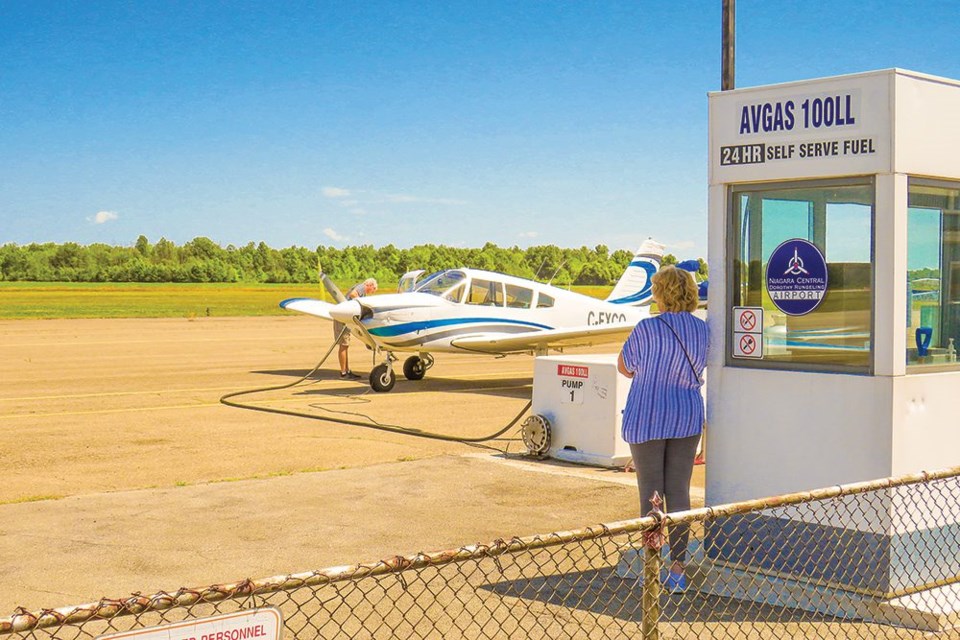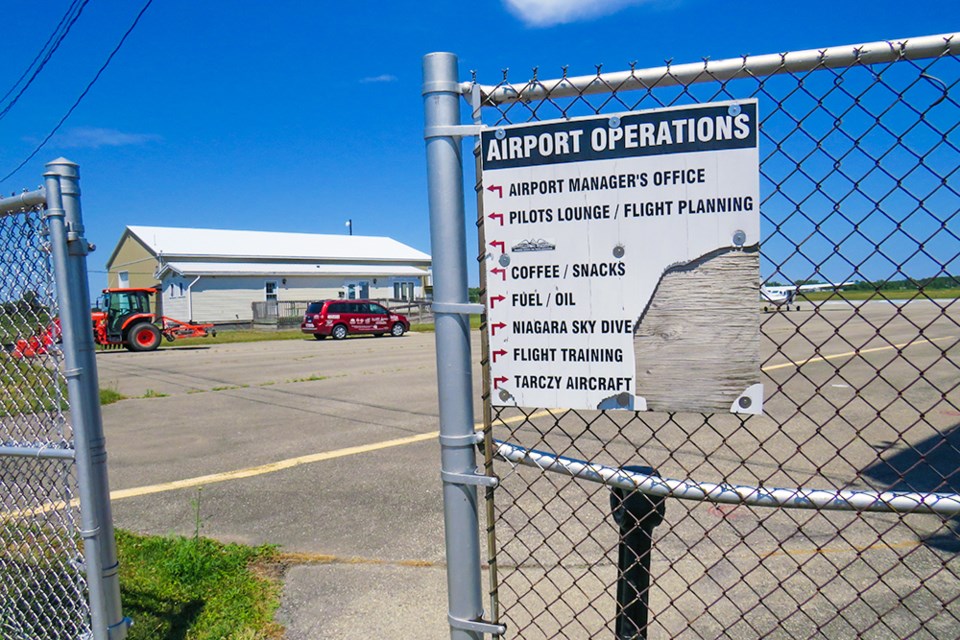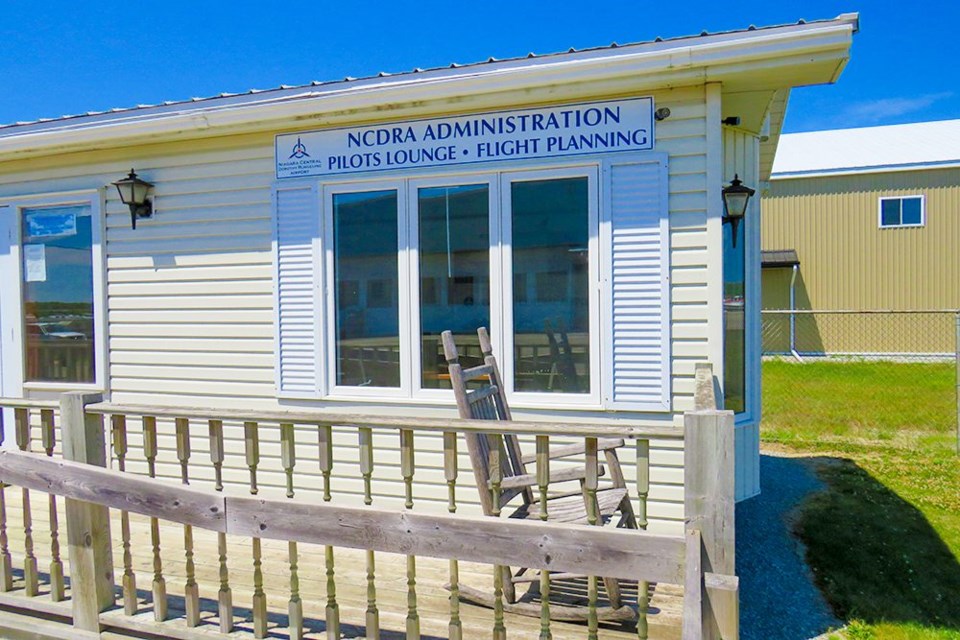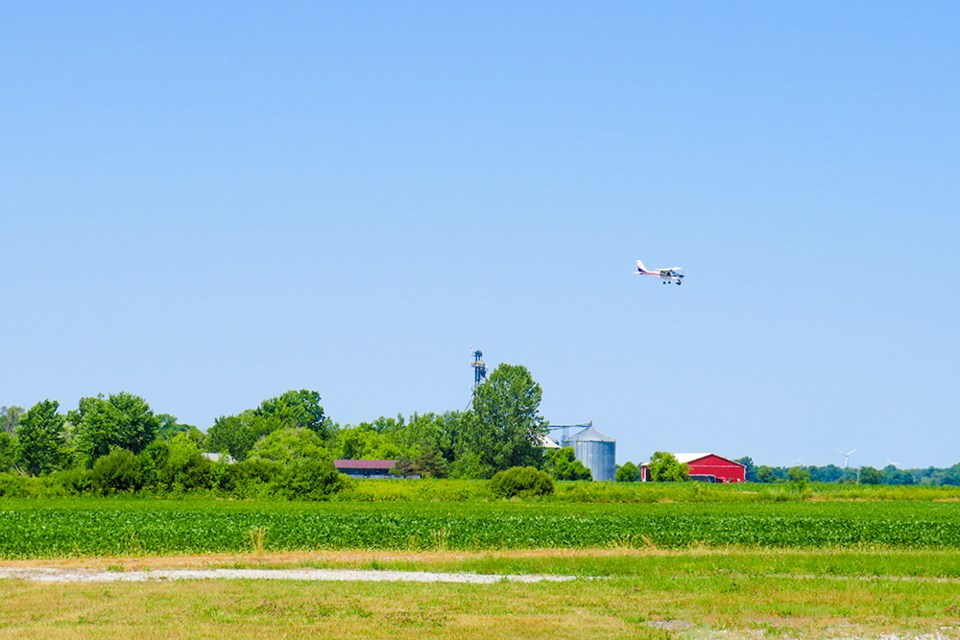Councillor's evasiveness leaves Town of Pelham staff, rest of council, in no-win position
After an 11-month investigation, in his report released in June Ontario Ombudsman Paul Dubé concluded that Pelham Town Council violated the Municipal Act by improperly discussing matters in private that should have been open to the public. This is the only such finding against a Pelham council in the Ombudsman Office’s nearly 50-year existence, leaving council as a whole with a metaphorical black eye. And it all could have been avoided had Ward 3 Councillor Lisa Haun accepted a pointed suggestion that she not rush council into the private session she insisted upon in April 2021.
The timeline
Emails obtained by the Voice through a Freedom of Information (FOI) request reveal the communications sequence between Haun and then-Town Clerk Nancy Bozzato mere days before council’s regularly scheduled meeting on April 19, 2021.
Seven days prior to the meeting, on April 12, Haun emails Bozzato, writing: “Please let me know if you have a few minutes to chat today about this motion to not upload airport to region.”
Bozzato responds approximately 20 minutes later, writing, “I am in the office today….I have an appointment with a resident at 11, but other than that my schedule is open.”
The Voice understands that this was the first of a handful of conversations between Town staff and Haun pertaining both to the content of her motion concerning the Niagara Central Dorothy Rungeling Airport, which is located on Pelham’s southern boundary, as well as to the questionable legality of council debating the motion in closed session.
Please let me know if you have a few minutes to chat today about this motion to not upload airport to region
On the surface, Haun’s motion was identical to motions that were to be presented to the municipal councils of Welland, Wainfleet, and Port Colborne, in addition to Pelham. All four municipalities have joint responsibility for running the airfield, a former World War II training facility that is now home to small aircraft flown by private pilots. The motion called on each of the four municipalities to rescind their earlier request that Niagara Region take control of the airport—that it be “uploaded” to the Region—removing oversight and responsibility for it from the four local councils.
However, discussion about such a proposal did not qualify for the very limited exemptions provided in the Municipal Act that permit a council to hide debate from public view—to go “in camera,” into closed session. (Generally speaking, only negotiations pertaining to a specific contract, or personnel matters regarding identifiable individuals may be shielded from the public.)
By 4 PM that day, after at least one telephone conversation with Haun, Bozzato puts into writing her reservations about council going into closed session.
In an email to Haun, Bozzato writes, “I have been unable to connect with the City Clerk for Welland so that any closed session meetings are aligned in terms of the specific exemptions permitted in the Municipal Act, Section 239(2). While I can appreciate that some of the discussion surrounding the potential uploading of the airport administration is, as you describe ‘sensitive,’ as a municipal corporation the most important component is whether or not a closed session meeting falls within one of the permitted exemptions of The Act.”
Bozzato writes that ideally she should also be having the same conversation with Wainfleet and Port Colborne, “but you and I did not discuss that so I did not reach out to them.”
Bozzato explains that because there are four municipalities involved, it would be best practice to align the resolutions between all four. Yet Haun’s short notice to the Clerk effectively precluded this.
“I do not now know that this will be possible given that our agenda must be published tomorrow,” Bozzato writes.

Bozzato also suggests that rather than Haun acting on her own, the better route would be that the Airport Commission—the body on which Haun serves as Pelham’s representative, along with councillors from the other three municipalities—make an official request to present to council.
“Ideally, this request should come to Pelham Council in the form of a resolution adopted by the Airport Commission so that it is seen as a unified approach, particularly in light of the fact that the previous motion by Pelham Council was properly adopted and the Region has already taken some action to act on that resolution.”
Bozzato concludes with a suggestion that’s about as pointed as Town staff might be with a council member, namely not to rush into a questionably improper meeting.
“Respectfully, Councillor Haun, might you consider taking a bit more time with this important matter and aligning any presentation to Pelham Council with the other three partner municipalities as part of a duly enacted resolution of the commission?”
The Voice understands that after additional telephone communication the next morning, during which Haun remained adamant that her motion be discussed in closed session and unwilling to say precisely why, Bozzato had no option but to add Haun’s request to the coming meeting’s agenda. A little after 11 AM on April 13, she emails Haun to ask who will second her motion. At noon Haun replies, “Councillor [Marianne] Stewart will second my motion.”

Staff limitations
In short, municipal staff, whether in Pelham or elsewhere, are obligated to do what their bosses—their town or city councillors—tell them to do. Whether these requests are sufficiently in the public interest, or necessarily follow legal procedure, is of secondary concern.
The Voice reached out to Pelham CAO David Cribbs and current Town Clerk Holly Willford (Bozzato, in fact, retired from the Town later the same month, in April 2021) to understand why council was permitted to continue discussing Haun’s motion during their meeting, when it must have become starkly apparent early on that doing so was in violation of the Municipal Act.
The short answer is that council can do what council wants to do—staff is on hand to advise, not control.
“Council always has control over the agendas,” responded Willford, “which is why members of council are formally provided with an opportunity to amend the agenda at the start of every meeting.”
Council has the capacity to remove an item, said Willford, add an item (with some legal limitations related to public notice) or amend the agenda order.

“With respect to this specific instance, because there was no written report [provided beforehand], staff were not in a position to assess whether or not the item would properly be in closed session,” said Willford.
Given that both staff and council were informed by Haun that the item complied with the “plans and instructions for negotiations” exemption in the Municipal Act, Willford said there was no reason not to proceed into closed session.
“Unfortunately, as per the Ombudsman, the dialogue never reached a point where it qualified for any of the various closed meeting exemptions.”
Only a council member could have expressed concern that the discussion was not falling under one of these exemptions, said CAO David Cribbs, or to have requested advice regarding such a concern. This did not occur as Haun, and two other members of the Airport Commission, continued speaking.
“Council and staff try to function as a team,” said Cribbs, “so in most regards we either fail or succeed together. This is entirely appropriate given the shared goal of providing valued services to the community.”
Cribbs said that in a closed session if a councillor believes the discussion should not be held in the absence of the public, he or she may make a motion to terminate the closed session.
“This motion can brought at any time during the in-camera proceedings. As a general principle, staff do not interrupt council meetings and are present to answer questions of council, when asked. In this instance, those present had reason to believe that the discussion was going to comply with the statutory requirements, unfortunately that threshold was never actually reached during the discussion.”
What was actually discussed
In fact, the thrust of Haun’s presentation—the “sensitive” content alluded to in her telephone contact with Clerk Nancy Bozzato—revolved around what by any reasonable assessment appears to be a half-baked scheme to develop certain airport lands into private housing, once again involving the Town of Pelham in real estate development, echoing the Town’s foray into such adventures in East Fonthill during the last years of Mayor David Augustyn’s time in office.
The impracticalities of the notion are too many to cover here, but most come back to the basic principle that while the airport property may lie within the municipality of Pelham, the land is not owned by Pelham nor does the Airport Commission currently have the legal authority to engage in such development—irrespective of whether such residences may be occupied by private pilots in the form of an “air park.”
Furthermore, there are established land use rules, including defined urban boundaries, which do not extend to the airport lands. Such development could be interpreted as a means by developers to make an end-run around these types of rules.
After the Ombudsman’s ruling was made public last month, Town Council voted to release the audio recording of the closed meeting—with Haun and Marianne Stewart the only councillors voting against doing so— as well as the minutes of the meeting.
In the recording, Councillor Wayne Olson can be heard pushing back against the notion that such a development project was permissible under the Welland-Port Colborne Airport Act of 1976, which created the airport. The Act specifies that if the lands are used for other purposes than an airport, then they are to be turned over to the Crown in return for the sum of $1 dollar. Any remediation or return of the lands to their original condition—i.e., a 416-acre empty field, sans runways, hangars, and fuel tanks— would be at the expense of the four municipalities.
Councillor John Wink expresses some frustration at the hastiness of Haun’s motion.
“Obviously there was nothing written here,” says Wink. “You don’t want anything written, so it kind of came out of the blue on me and some of the other councillors, I’m sure.”
You don’t want anything written, so it kind of came out of the blue on me and some of the other councillors, I’m sure
Wink says he wants sufficient time to review the facts.
“I understand that it was last council—that this council didn’t have any input [on a previous vote to upload the airport to Niagara Region]. All that I’m saying is that I want to see the staff report from that 2018 decision to upload it, so that I get a better understanding on both sides of the issue, not just one side.”
Similarly, Councillor Olson laments a lack of clarity from the Airport Commission related to its financial statements.
“I got an income statement, but I didn’t get a balance sheet...and I’ve asked for that, boy, I guess I asked for that in December [2020] or January [2021] for what the budget would look like….I believe some of your own users are looking for a business plan, so I would be looking for at the very least a preliminary-type business plan, starting with justification and understanding of what the costs are [to retain the airfield]. Notwithstanding the fact that I don’t think you can do this, I’d like to know where we’re going.”

Councillor Marianne Stewart then erroneously suggests that Pelham gets more revenue from the airport than the Town pays to maintain it.
“It’s a pretty simplistic kind of comment,” says Stewart. “The airport is in the Town of Pelham. We contribute $28,000 dollars a year to its care and maintenance, and we receive approximately $55,000 dollars a year from the airport in property taxes. So actually it costs us nothing. It nets us about $27,000 dollars. So I don’t understand what the big discussion is. Why would we be willing to give it away and not get the tax money, and then end up having to pay a lot of money to the Region if they take it. Maybe it’s a pretty simplistic idea, but that’s what it looks like to me.”
In fact, Stewart’s figures were not correct. At the Mayor’s request, Town Treasurer Teresa Quinlin-Murphy, who is present, provides the accurate numbers. Quinlin says that according to the Airport Commission’s own documents, the airport pays just $21,150 in property taxes.
“But don’t forget that only 40 percent of that would come to the Town,” says Quinlin-Murphy. “There’s a portion that goes to the Region, and a portion goes to the school boards.”
Olson later asks if Director of Planning Barb Wiens is present in the virtual meeting, to which CAO Cribbs responds that he was asked to exclude staff other than the Treasurer and complied with this request.
Olson then asks Cribbs to clarify whether such a housing development on airport lands would require the same planning and approval process as for other developments in the municipality.
Cribbs pauses, says that he’s not intending to advocate for any particular outcome, then goes on to outline several hurdles, not the least of which is that the airport lands are zoned not residential but rather industrial, institutional, agricultural, and environmentally significant.
“I’m not a planner by training but I am a lawyer...I don’t think at law any of these lands can be developed into residential lots. I think there are Provincial policy rules against that, I think there are Regional policy rules against that, and I think the Town’s zoning bylaw prohibits that.”
Cribbs adds that under the Planning Act he doesn’t think that an airport authority can subdivide “any portion of itself.”
“At any rate…maybe there’s room for something creative. But as our current zoning bylaw stands, and planning law stands, I don’t think any lots can be created here.”
A moment later the meeting ends.
Aftermath
Acting upon a citizen complaint filed soon after the meeting occurred, the Ombudsman of Ontario’s office began its investigation effectively into whether Haun’s assertion that the topic and discussion met any of the closed meeting exemptions. The Voice reported in our June 29, 2022 edition on the Ombudsman’s finding that no exemption was met, and that council in fact violated the Municipal Act by going into closed session.
Neither Councillors Lisa Haun nor Marianne Stewart responded to multiple requests for comment for this story.
Former Town Clerk Nancy Bozzato did not respond to a request for comment.
Please note that this policy is currently the subject of an administrative/legal review
Additionally, the Voice noted that in her communications with Nancy Bozzato, Lisa Haun used a private email address, not her assigned Town email account. Haun did not respond to a Voice request to explain why she used a personal email address, or whether she believed that doing so would somehow exempt her email from being discoverable through an FOI request (it doesn’t).
Asked whether personal email usage by councillors is accepted practice, Town Clerk Holly Willford said that all Town Councillors are provided with a Town email account, but that there is no policy stating members of council must use their corporate email accounts to contact Town staff.
“Accordingly, there are times members of council do communicate with staff via personal accounts,” said Willford. “Please note that this policy is currently the subject of an administrative/legal review.”
One of the Ombudsman’s four recommendations in his report pertained to staff practices, specifically that more descriptive reasons be used on future meeting agendas to identify to the public the nature of closed session discussions.
In the fall of 2021, said Willford, the Clerk’s Department conducted a review of its own practices and at that time voluntarily adopted a new operational approach which resulted in more information being provided to the public regarding closed sessions.
“Accordingly, the Town both accepts and agrees with the Ombudsman’s recommendation,” said the Clerk, “although Pelham had already been compliant with the approach for more than six months at the time that the Town received [his] official report.”


